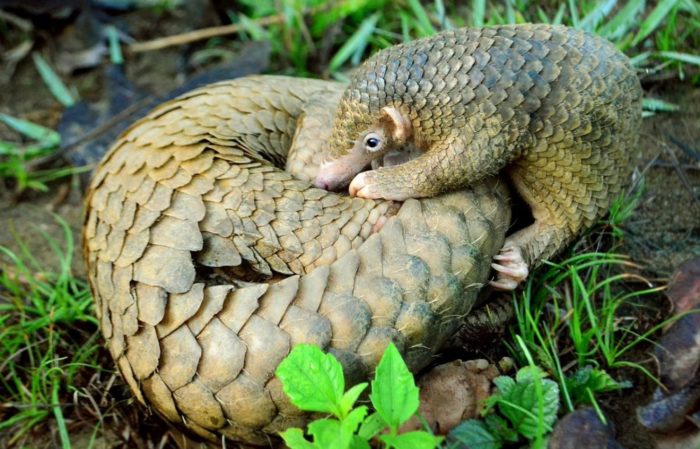Jun 12 2020
China and the Pangolin Trade
 Pangolin’s are adorable and weird animals. They are mammals, with eight (although some references say seven) species in their own order, the Pholidota (all eight species are also in the same family and genus). They have scales, no teeth, and a long tongue, and are native to Africa and Asia. They are also endangered for a very specific reason – their scales are valued as medicine in Traditional Chinese Medicine. They are endangered because of culturally and politically sanctioned pseudoscience.
Pangolin’s are adorable and weird animals. They are mammals, with eight (although some references say seven) species in their own order, the Pholidota (all eight species are also in the same family and genus). They have scales, no teeth, and a long tongue, and are native to Africa and Asia. They are also endangered for a very specific reason – their scales are valued as medicine in Traditional Chinese Medicine. They are endangered because of culturally and politically sanctioned pseudoscience.
This is why it has come as welcome news that China has finally removed pangolin scales from the list of official TCM treatments. They have also upgraded pangolins to the highest level of protection. I applaud this decision, which may be a “game changer” in terms of protecting pangolins, but I do have to point out that China is just mitigating a problem entirely of its own creation. It’s like announcing that you are going to stop beating your wife. Congratulations.
What remains to be seen is how strictly they are going to enforce their new protections. Striking pangolins from the list of official TCM products will not magically erase centuries of culture, or a very lucrative black market – just as banning ivory did not instantly disappear the ivory trade and save the elephant. Further, China needs to do the same thing for the entire list of TCM treatments based upon animals parts. No tiger bones, bear bile, or rhino horn.
There is also an angle to this story that goes beyond saving endangered species. It is highly likely that the animal trade, which often involves many animals crammed together in conditions that are less than hygienic, contributes to the development of pathogens, including human pathogens. The path of SARS-CoV-2 may have gone from bats, through pangolins, and then into humans. This is not yet proven, but the expert money is on the Chinese wet animals markets as the incubator of this virus. The entire trade needs to be shut down.
I do have to wonder if this move by China was motivated by world attention on their wet markets and specifically the potential role of pangolins. If so, then let’s keep the attention and criticism up. They have more to do.
Not to mention, of course, that fake medicine is also bad. China has specifically decided that part of its rise to power includes cultural hegemony, which means exporting identifiable Chinese culture. The flagship of this is TCM, which means that China has a huge political and propaganda incentive to support this particular brand of pseudoscience because it is branded Chinese. This started with Chairman Mao, who essentially created modern TCM. His government took threads from various Chinese medical traditions, even ones that historically were mutually incompatible and at war with each other, and combined them into one TCM. He also modernized many of the actually traditional concepts, so that they would seem less quaint and superstitious. He completely reinvented acupuncture, for example, which historically was mainly a form of bloodletting.
In essence, Mao retconned TCM for propaganda purposes, and it worked. The world eventually bought it, and the true history of TCM has been mostly whitewashed from modern memory. We can’t let them erase the history of TCM and animal abuse and endangerment, however. So I applaud the recent change with regard to pangolins, but let’s not forget the full history here, and the remaining menace that TCM poses for other endangered animals.






